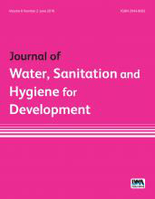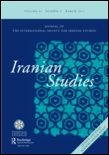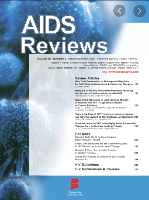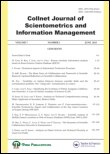
LEARNED PUBLISHING
Scope & Guideline
Exploring the Future of Scholarly Dissemination
Introduction
Aims and Scopes
- Open Access Publishing:
The journal emphasizes discussions on open access publishing models, transformative agreements, and the implications of these practices on scholarly communication and accessibility. - Peer Review and Editorial Practices:
A core focus is on the peer review process, exploring its standards, guidelines, and innovations to enhance trust and effectiveness in scholarly publishing. - Research Integrity and Ethics:
The journal addresses issues of research integrity, including the challenges posed by predatory publishing, authorship ethics, and the reporting of research misconduct. - Impact of Technology on Publishing:
The impact of emerging technologies, especially artificial intelligence, on the publishing landscape is a significant area of focus, analyzing its effects on authorship, peer review, and editorial processes. - Diversity, Equity, and Inclusion (DEI) in Publishing:
The journal contributes to the discourse on DEI in scholarly publishing, examining practices to promote inclusivity and representation in authorship, editorial boards, and publications. - Global Trends in Scholarly Communication:
It highlights regional and global trends in scholarly publishing, including the effects of geopolitical events on research outputs and the implications for international collaboration.
Trending and Emerging
- Artificial Intelligence in Publishing:
The exploration of AI's role in scholarly publishing is gaining momentum, with discussions on AI-generated content, automated peer review processes, and the ethical implications of AI authorship. - Open Science and Research Transparency:
There is an increasing focus on open science practices, including data sharing, transparency in research processes, and the role of open access in facilitating wider dissemination of research. - Sustainability in Publishing Practices:
Emerging themes around sustainability, particularly in relation to the environmental impact of publishing practices and the push for more sustainable models within the industry, are becoming prominent. - Diversity and Inclusion Initiatives:
The journal is increasingly addressing equity and inclusion in scholarly publishing, reflecting a broader societal demand for diverse representation in authorship and editorial boards. - Impact of Geopolitical Events on Publishing:
Recent trends highlight the effects of geopolitical issues, such as sanctions and conflicts, on scholarly communication and publication patterns, indicating a need for adaptive strategies in publishing.
Declining or Waning
- Traditional Publishing Models:
There is a noticeable decline in discussions surrounding traditional subscription-based publishing models as the focus shifts towards open access and alternative publishing formats. - Linguistic Analysis in Publishing:
Themes related to linguistic analysis of academic writing and publishing practices have waned, possibly due to a growing emphasis on broader systemic issues rather than micro-level linguistic features. - Local or National Journals:
The prominence of studies focused solely on local or national journal practices has declined as the journal increasingly addresses global perspectives and the internationalization of scholarly publishing. - Print vs. Digital Publishing:
Discussions surrounding the dichotomy between print and digital publishing have diminished, as digital formats become the standard and less of a point of contention in the publishing discourse.
Similar Journals

Journal of Water Sanitation and Hygiene for Development
Advancing sustainable solutions for global water sanitation.Welcome to the Journal of Water Sanitation and Hygiene for Development, a leading platform published by IWA PUBLISHING that focuses on the critical intersection of water management and public health. Established in 2011 and transitioning to an Open Access model in 2021, this journal is dedicated to advancing knowledge and promoting practices in water sanitation and hygiene, essential for sustainable development globally. With an impressive range of quartile rankings, including Q2 in Development and Water Science and Technology, and recognized within several Scopus categories, it serves as an impactful resource for researchers, professionals, and students invested in water safety and sanitation issues. Additionally, the journal's commitment to disseminating high-quality research fosters innovation and collaboration in tackling ongoing global challenges in sanitation and hygiene. Join us in exploring vital research and insights that drive meaningful change in water-related practices across diverse contexts.

Iranian Studies
Diving Deep into Iran's Cultural and Historical LandscapeIranian Studies is a prestigious academic journal published by Cambridge University Press, focusing on the intricate and diverse aspects of Iranian culture, history, and literature. With an impressive impact factor reflected in its Q1 and Q2 quartile rankings across several categories, including Literature and Literary Theory, History, and Cultural Studies, the journal stands as a vital resource for scholars dedicated to advancing their understanding of Iranian studies. Since its inception in 1967, it has provided a platform for rigorous research and critical discourse, making significant contributions to the fields of Iranian cultural and historical studies. Although the journal is not open access, it ensures quality and rigor in academic publishing, appealing to a wide array of readers, including researchers, professionals, and students seeking authoritative insights. With coverage available until 2024, Iranian Studies remains an essential point of reference and a source of innovative scholarship in the humanities.

CHICAGO REVIEW
Celebrating Diverse Narratives in Literary ArtCHICAGO REVIEW is a prestigious literary journal published in the United States, with a mission to explore the rich tapestry of contemporary literature and literary theory. With its ISSN 0009-3696 and E-ISSN 2327-5804, the journal serves as a vital platform for emerging voices and established authors alike, showcasing a diverse array of literary forms, including poetry, prose, and critical essays. Published by the CHICAGO REVIEW, the journal stands as an influential publication in the field, particularly noted for its contributions to the understanding of literature's role in society. Despite being categorized in the fourth quartile (Q4) for 2023 in Literature and Literary Theory, its commitment to quality and innovation makes it a significant resource for researchers, professionals, and students seeking to deepen their engagement with literary studies. The journal has maintained a continuous presence from 2002 to 2022, promising a comprehensive archive of thought-provoking content for its readers.

Logos-Journal of the World Publishing Community
Illuminating Trends in Communication and Information SciencesLogos - Journal of the World Publishing Community, published by BRILL in the Netherlands, serves as an essential interdisciplinary platform for scholars and practitioners engaged in the fields of Communication, Computer Science Applications, Education, Library and Information Sciences, Literature, and Media Technology. Established in 1994, this journal has evolved remarkably and spans multiple genres within the social and human sciences, reflecting a global perspective and the latest trends in research and publishing practices. Although it is currently indexed in the Q4 quartile for several categories, it has established a niche in Literature and Literary Theory, attaining a commendable 70th percentile ranking among its peers. Readers will appreciate the journal's commitment to fostering academic dialogue and innovation, making it a valuable resource for those interested in the intricacies of publishing and communication in a rapidly changing digital landscape. While it remains subscription-based, the journal’s contributions are indispensable for advancing knowledge and understanding in an era where information dissemination is paramount.

AIDS REVIEWS
Illuminating the path to better health outcomes.AIDS REVIEWS, published by Permanyer Publishing, is a distinguished academic journal dedicated to providing comprehensive insights into the field of AIDS research. Since its inception in 2000, the journal has served as a vital platform for disseminating knowledge on various aspects of HIV/AIDS, including prevention, treatment advancements, and socio-medical implications. With a commendable Q3 ranking in both Infectious Diseases and Medicine (miscellaneous), as well as Pharmacology (medical) in 2023, the journal has made significant strides in the academic community, covering relevant topics and emerging trends up to 2024. Although not open access, AIDS REVIEWS continues to attract contributions from leading researchers and professionals, fostering a collaborative environment aimed at improving health outcomes related to AIDS. Located in Barcelona, Spain, this journal is an essential resource for anyone dedicated to advancing their understanding of this global health challenge.

Tekst Kniga Knigoizdanie-Text Book Publishing
Advancing Knowledge in Communication and Media.Tekst Kniga Knigoizdanie-Text Book Publishing, an academic journal published by TOMSK STATE UNIVERSITY, focuses on the diverse and multidisciplinary fields of communication, library and information sciences, and media technology. Established in the Russian Federation, this journal serves as a vital platform for sharing innovative research from 2018 to 2024. Though registered under multiple categories, it notably ranks in the lower quartiles of its respective fields, including a Q2 position in Visual Arts and Performing Arts. The journal, with an ISSN of 2306-2061 and E-ISSN 2311-3774, aims to advance knowledge and foster dialogue in these critical areas, making it essential for researchers, professionals, and students seeking to delve deeper into the evolving landscapes of communication and media. Despite currently not being an open access journal, the insights presented within its pages contribute significantly to contemporary discussions and practices. With its commitment to academic rigor, Tekst Kniga Knigoizdanie is poised to impact its communities and beyond.

Libres-Library and Information Science Research Electronic Journal
Advancing knowledge in Library and Information Science.Libres-Library and Information Science Research Electronic Journal, ISSN: 1058-6768, is a prominent open-access journal published by Nanyang Technological University Library in Singapore. Since its inception in 1996, Libres has dedicated itself to advancing the field of library and information sciences through a rich repository of research articles, fostering scholarly communication, and enhancing knowledge-sharing among academics, practitioners, and students alike. The journal supports an open-access mandate, allowing free and unrestricted access to its content, which is essential for fostering inclusivity and accessibility in research. Despite currently being positioned in the Q4 category for Library and Information Sciences and holding a Scopus rank of #185 out of 280, Libres is recognized as a crucial platform for emerging trends, innovative practices, and critical discussions in the discipline. The journal’s commitment to quality research and scholarly discourse makes it an invaluable resource for those looking to deepen their understanding and engage with the library and information sciences community.

RDBCI-Revista Digital de Biblioteconomia e Ciencia da Informacao
Catalyzing advancements in multidisciplinary research.RDBCI-Revista Digital de Biblioteconomia e Ciencia da Informacao, published by the esteemed Universidade Estadual de Campinas, is a premier Open Access journal dedicated to advancing the fields of Library and Information Science, Education, and Public Administration. Since its inception in 2003, this multidisciplinary journal has aimed to provide a platform for high-quality research and discourse, contributing to the academic community both in Brazil and globally. With the E-ISSN 1678-765X, the journal addresses contemporary issues and innovations in information management, ensuring accessibility to a diverse audience. RDBCI holds a respectable position among its peers, boasting a Q3 ranking in Library and Information Sciences and various Q4 classifications in Education and Information Systems as of 2023. Scholars and practitioners are encouraged to submit their work, engage with research trends, and explore significant advancements in the discipline through this vital source of knowledge.

SENSORS AND MATERIALS
Exploring the Synergy of Instrumentation and Materials EngineeringSENSORS AND MATERIALS is a pivotal academic journal dedicated to the dissemination of research in the fields of instrumentation and materials science. Published by MYU, SCIENTIFIC PUBLISHING DIVISION in Japan, this open-access journal has been fostering innovative research since its inception in 1996. With an ISSN of 0914-4935, it serves as a platform for the scholarly communication of studies that intertwine the developments in sensor technology and materials engineering. As of 2023, it occupies a respectable position in the category quartiles, ranking Q3 in both Instrumentation and Materials Science (miscellaneous), reflecting its commitment to quality research. The journal's Scopus rankings further highlight its relevance, being placed at Rank #317 in General Materials Science and Rank #105 in Instrumentation. With its open-access model, SENSORS AND MATERIALS ensures widespread availability of cutting-edge research that is critical for researchers, professionals, and students engaged in advancing the fields of sensor technologies and material innovations.

Collnet Journal of Scientometrics and Information Management
Exploring Innovative Insights in Knowledge MetricsCollnet Journal of Scientometrics and Information Management, published by TARU PUBLICATIONS, serves as a pivotal platform for researchers, professionals, and students engaged in the dynamic fields of scientometrics and information management. With a commitment to advancing knowledge in these areas, the journal explores innovative methodologies and emerging trends that impact the evaluation and dissemination of scientific information. Though currently not designated as open access, the journal remains highly regarded for its scholarly contributions, making it an essential resource for those seeking to enhance their understanding of knowledge metrics and information science. By facilitating the exchange of high-quality research and insights, this journal plays a crucial role in fostering academic collaboration and shaping the future discourse in the field.